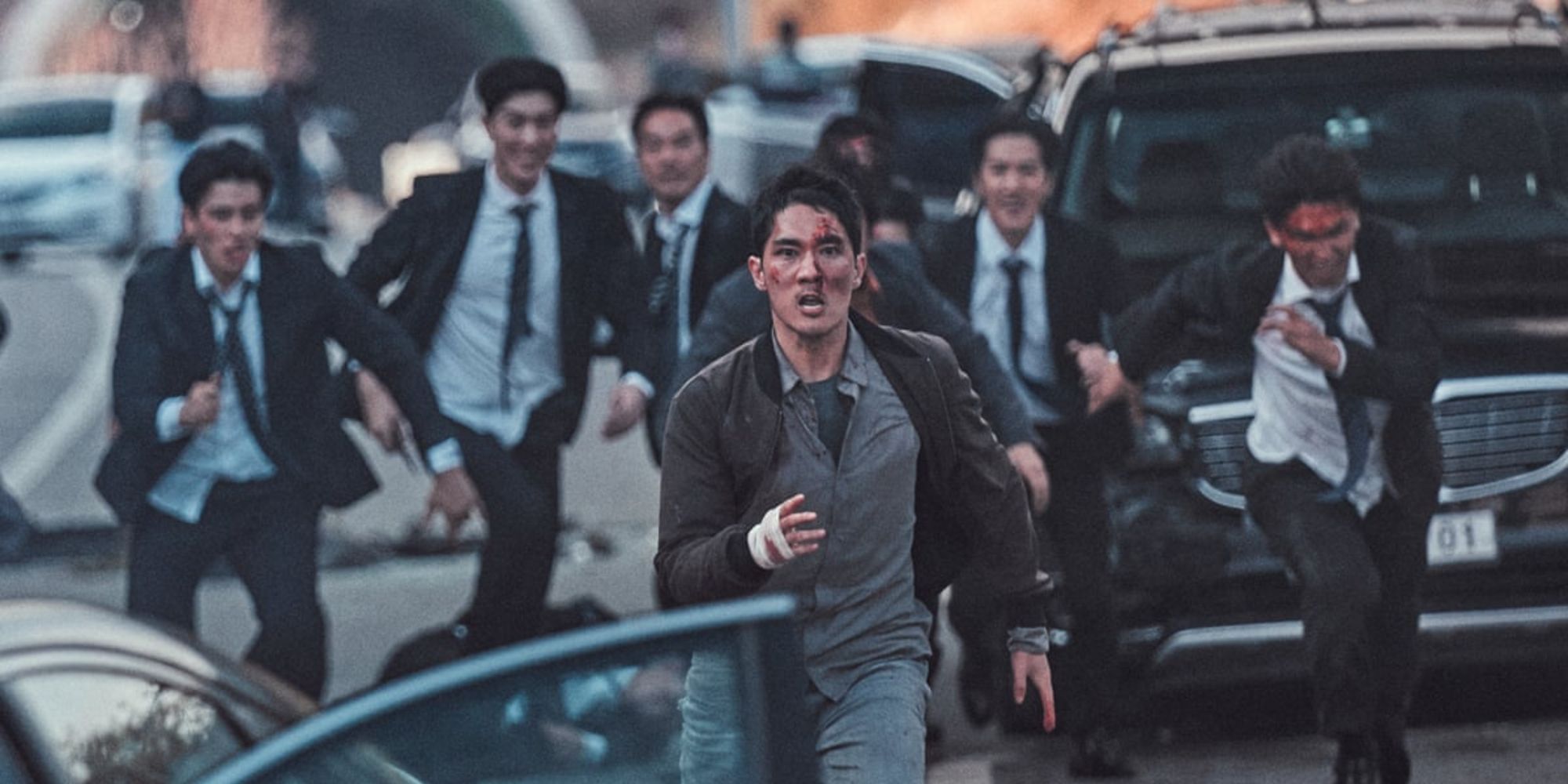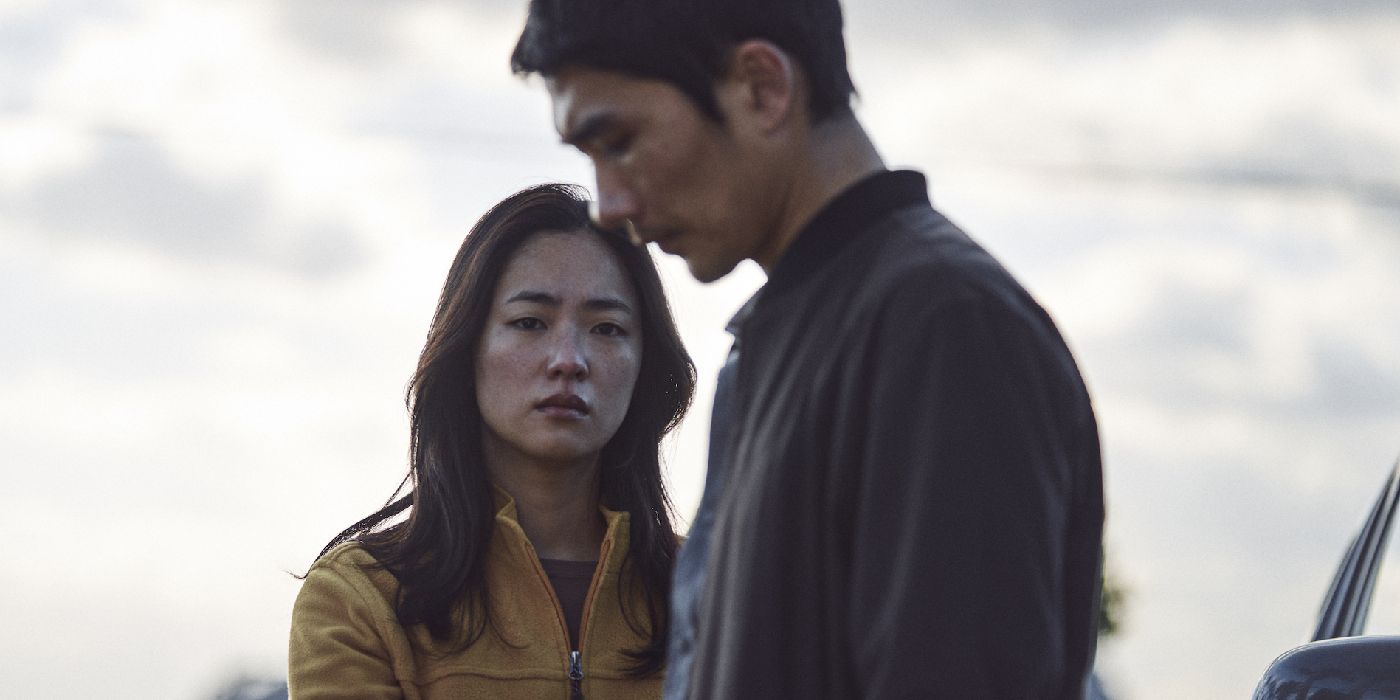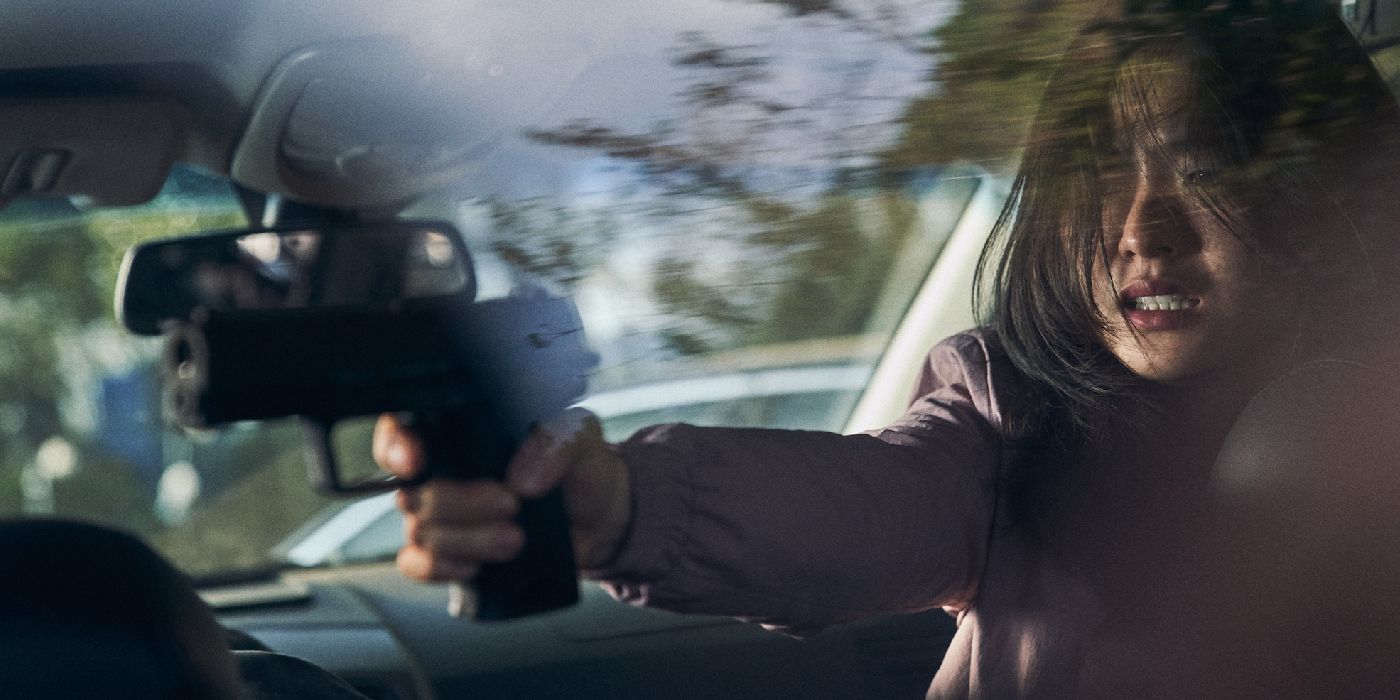
South Korean writer-director Park Hoon-jung made a mark in Asian crime-noir with his 2013 gangster epic, New World, which was lauded for its intricate plotline and distinctive characterization. In his sixth feature, Night in Paradise, Hoon-jung etches a violent, nihilistic portrait of a world dictated by gangster codes of conduct, or in some cases, the complete absence of justice in an uncaring, indifferent universe. Revenge emerges as the central motif in Night in Paradise, as most of the film’s characters are driven by the urge to settle a score, whilst battling their own personal hells. Expertly shot and crafted, Night in Paradise relishes in its own murky and blood-drenched vignettes while being grim to the point of no respite.
Tae-gu (Um Tae-goo), a member of the Seoul-based gang led by Yang Do-soo (Park Ho-san), is well-respected among the city’s underbelly, purportedly for his quiet integrity and sense of loyalty — a rarity in the criminal world. Eager to make use of him, the rival Bukseong gang seeks to recruit him and his men, but Tae-gu does not seem to be someone to switch allegiances at the drop of a hat. When not delving into the folds of crime, Tae-gu spends much of his time doting on his ailing sister and niece, who seem to share an endearing relationship with him, being his only source of solace. However, Tae-gu’s inner world collapses beyond repair after his only family is killed, driving him to the edge of despair and the need to avenge their deaths. While navigating the complex and volatile dynamics of the South Korean criminal scene, Tae-gu seeks refuge on the idyllic island of Jeju after assassinating the leader of the Bukseong gang for their apparent involvement in his personal tragedy.

Wronged, utterly broken, and left with nothing to lose, Tae-gu lays low on Jeju island whilst staying with assassin-turned-arms-dealer Kuto (Lee Gi Young) and his terminally-ill niece, Jae-yeon (Jeon Yeo-been). Acutely aware of her numbered days, Jae-yeon navigates life with a detached nonchalance, shooting glass bottles with expert precision and treating Tae-gu with deadpan contempt. Meanwhile, Tae-gu spends his days mired in liquor and cigarette smoke, unaffected by the island’s breathtaking beauty, as he is too busy stewing in his own juices and battling his inner demons.
However, Jae-yeon struggles with demons of her own, as her otherwise brusque demeanor hides a cavern of unimaginable pain, loss, and loneliness. Jae-yeon gradually warms up to Tae-gu, who also opens up to her in part, and the two bond over their mutual, incalculable losses and a shared love for mulhoe. One of the greatest strengths of Night in Paradise is its evocative, slow-burn unraveling, and the nuanced portraiture of characters who harbor a kernel of intensity deep within their psyches. As the film progresses, the stakes are raised when the formidable

Director Ma (Cha Seung-won) seeks to settle his score against Tae-gu, rendering him solely responsible for the death of his boss and the public embarrassment that the incident has brought upon him. What ensues is a bloody ouroboros of vengeance, retribution, and violence, an inescapable maze of suffering and death that offers no respite or justice for those who deserve it. The fates of Tae-gu and Jae-yeon are inexplicably intertwined, wherein both characters are doomed to premature death, whilst being subjected to the cruelty of a dog-eat-dog world.
Apart from featuring breathtaking cinematography, Night in Paradise boasts stellar performances from its leads, along with supporting characters such as Kuto, who manages to evoke considerable empathy during his final moments. Although the film ends on a heartbreakingly grim note, it offers catharsis in an almost visceral manner, one that is sprayed with guts, entrails, and comeuppance. The overall dark, gritty, cynical tone of Night in Paradise lends to much of its brilliance, having been executed with masterful skill and an innate understanding of what hounds wronged, embittered souls until the very end.
Night in Paradise was released April 9, 2021, and is available for streaming on Netflix. The film is 132 minutes long and remains unrated as of now.
Let us know what you thought of the film in the comments!
from ScreenRant - Feed https://ift.tt/3wNjoVu

0 Comments